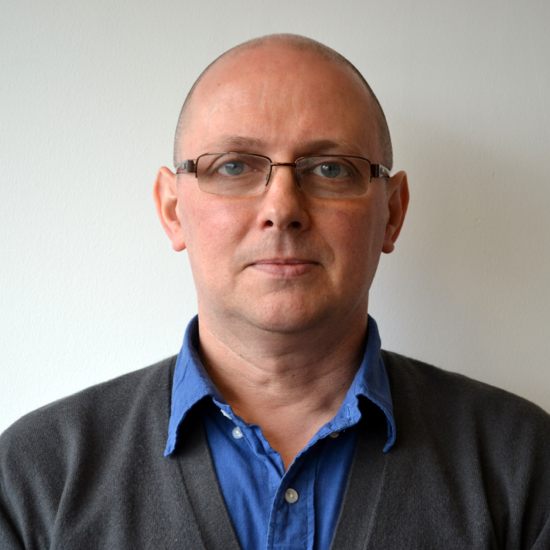Prof Ken Gibb: Housing policies and the COVID-19 pandemic
CaCHE director, Prof Ken Gibb, introduces a major 15-month multi-strand research project on UK housing policies and the COVID-19 crisis.

Prof Ken Gibb
The UK Collaborative Centre for Housing Evidence (CaCHE), like everyone else, has been both affected by the pandemic and lockdown directly in changing how we work and what we can do, but also in terms of what work we should be doing. It would be quite hard in recent times to be both an active researcher and not be very aware of the research opportunities and imperatives that have been surfaced by the 2020 virus crisis.
Housing is both the site where people are locked down and a critical source of security and a potential crisis point for people struggling in terms of affordability and security. It is where essential emergency policy has been enacted in the UK as elsewhere, to keep society functioning. This has included some remarkable policies such as the public health response to rough sleeping and the quite unprecedented injections of state funds including the (temporary?) reversal of totemic austerity policies. Housing has also been foregrounded as a pressure point of the lockdown for families coping with homeschooling, loneliness, domestic violence and home working, among other dimensions of a resurgent interest in the meaning of home.
As an evidence centre, CaCHE has been doing a number of things in response to the crisis. First, we have hosted a wide range of internal and external contributions to debates about all of the above and other housing-related questions arising from the emergency. This on-going programme has included blogs, webinars, video debates, working papers and more. Second, we are supporting a number of bids being submitted to the UKRI rapid response call, usually as a Knowledge Exchange partner. Third, we are a partner supporting and participating in the Policy Scotland More Different Futures international housing evidence network led by Prof Duncan Maclennan.
We have been thinking hard about how we could initiate our own significant contribution to the crisis and do so in a way which could be distinctive and recognisable as a CaCHE activity. And, by a combination of factors, we have come up with what we think is an interesting and somewhat different multi-strand research project.
The project came about because of an approach from our advisory board member and colleague, Prof Hal Pawson. Based in Australia, he was seeking to build a comparative project examining how specific emergency policies related to housing fared as the public health emergency passed through its stages and the economy and public policy sought to recover (‘building back better’). By further developing the UK end of this project and in particular replicating the core idea of following a policy area with key stakeholders and front line providers for a period of more than a year, we wanted to be able to say something about how policy evolves, why it may change in different ways from the initial emergency policy, and what role evidence and other drivers play. Hal’s project in Australia has been subsequently reshaped but we do still intend to undertake comparative work as initially planned and, of course, we want to recognise Hal’s important contribution in bringing this opportunity to life. I would also here mention the great contribution Prof Suzanne Fitzpatrick and Dr Chris Foye have helped to make this project happen.
We have identified five themes and teams of CaCHE co-investigators and core staff who will work across these themes. Each theme will run for approximately 15 months and track policy development and the reasoning for it in their area through repeat interviews and a wider drawing on evidence, other relevant research and literature. The themes and the leaders are:
- Homelessness (Prof Suzanne Fitzpatrick and Dr Pete Mackie)
- Rented sector, evictions and activism (Prof Alex Marsh, Dr Adriana Mihaela Soaita and Dr Chris Foye)
- The economy, housing markets, incomes and housing costs (Prof Ken Gibb and Prof Moira Munro)
- Resilience and housing system (including resilience in housing design and planning (Prof Mark Stephens and Prof Flora Samuel)
- Domestic violence (Prof Annette Hastings and Prof Mhairi Mackenzie)
We will also prepare a series of rapid reviews to support the project. The first two concern public policymaking under times of crisis and a second concerned with scenario planning.
We are excited by undertaking this large internal project. It brings a large number of our staff, co-investigators and colleagues in a team effort on a scale that we have not hitherto attempted. It will afford the opportunity to take a more deliberate and considered approach to a series of important issues as they change (or indeed do not) in real-time, as the crisis and recovery go through future phases. It is also great to be pursuing such a project on our own terms as our own project. We will hold an introductory webinar on the project shortly and intend to continue to deliver a series of theme and project-wide outputs as the project unfolds.
If you would like to know more about the project or you are interested in collaboration, please contact Prof Ken Gibb or Dr Chris Foye.
Further details about the project can be found on the CaCHE news page.
- Professor Ken Gibb is the director of the UK Collaborative Centre for Housing Evidence. Dr Chris Foye is a knowledge exchange associate at the UK Collaborative Centre for Housing Evidence.
This article was originally published on the CaCHE website.
- Read all of our articles relating to COVID-19 here.









